ISLAMABAD, Apr 22 (APP):Special Assistant to Prime Minister on National Health Services Dr Zafar Mirza on Wednesday inaugurated the Center for Occupational and Patient Safety (COPS) and Infection Prevention Control (IPC) Guidelines here at the National Institute of Health (NIH).
The prime goal of COPS, established by the NIH in collaboration with the World Health Organization (WHO), is to provide continuous strategic guidance, capacity building, research and invalidation in facilitating the leaders at all levels to embrace, create, and implement tools of occupational safety.
The COPS will offer a range of programmes to raise awareness and expedite implementation of ideas and best practices to achieve transformation in patient safety.
The COPS will play an instrumental role to enhance patient experience, reduce risks and harm, and achieve better health outcomes to improve healthcare quality in Pakistan.
Currently, there is no formal Infection Prevention and Control (IPC) programme either at the national, provincial or the facility level. The National IPC Guidelines may apply and practice throughout the country for prevention from infection specially in the context of COVID-19.
The main objective of the guidelines is to provide basic and simple IPC knowledge and practices to prevent the healthcare workers and patients from different kind infections.
The Infection Prevention and Control Guidelines will be implemented at all times for extending safe care in all healthcare facilities, including primary, secondary and tertiary healthcare facilities- in both private and public sectors as a part of the routine standard practices in healthcare environment specially in context of COVID-19.
The National IPC Guidelines were prepared with the help of WHO experts from the WHO and a National Technical Working (TWG) group comprising medical microbiologists, infectious diseases physicians and consultants in public health from all over the country. The entire process was facilitated by the NIH.
Dr Zafar Mirza on the occasion said it was expected that the guidelines would be valuable for improving the quality of services regarding IPC in healthcare facilities.
The guidelines, he said, were developed after several meetings and consultations with the experts of assorted areas of IPC. The subject matter was realistic and applicable to the existing local setups in the country and the guidelines would be pertinent to all healthcare facilities in Pakistan, he added.
NIH Executive Director Maj. Gen. Aamer Ikram said, “We are optimistic that the effective implementation of these simple IPC practices and functions of the COPS will have an enormous positive impact in reducing healthcare-associated infections (HAIs), and improving patient safety levels.”
He said the guidelines would also influence antimicrobial consumption and strengthen the Antibiotic Stewardship programme to reduce the burden of antimicrobial resistance (AMR) which was a global priority. The guidelines and Center would help the healthcare workers in prevention and safety form the diseases like COVID-19.
WHO Representative to Pakistan Dr Palitha Mahipala said, “We are here today to highlight the importance of clean care, including hand hygiene best practices and the central role healthcare workers play in this. Clean care has always been recognized as one of WHO’s urgent challenges to be tackled but in times of COVID-19 this has become even more important.”
He said the WHO had three priorities for responding to the COVID pandemic, including protecting health workers, engaging communities to protect those at the highest risk of severe disease and supporting vulnerable countries for containment of infection.




